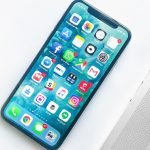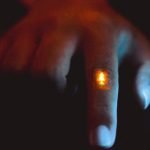These crystals could help computers run on less power
Researchers have created engineered crystal structures that display an unusual physical phenomenon known as negative capacitance.
Incorporating this material into advanced silicon transistors could...
Does this artificial intelligence think like a human
In machine learning, understanding why a model makes certain decisions is often just as important as whether those decisions are correct.
For instance, a machine-learning...
Cornell engineers pave the way for next-gen deep ultraviolet lasers
Engineers have created a deep-ultraviolet laser using semiconductor materials.
This shows great promise for improving the use of ultraviolet light for sterilizing medical tools, purifying...
Will the EU’s new law remake big tech
Last week, European Union lawmakers reached agreement on the Digital Markets Act, which will force the biggest technology companies to open up their platforms...
Stanford engineers develop stretchy display for shapable electronics
After discovering a groundbreaking way to create an elastic light-emitting polymer, Stanford chemical engineers have developed high-brightness, stretchy color displays.
No one would ever imagine...
New Dragonfly telescope is a galactic gas detector
The Dragonfly telescope is undergoing a metamorphosis.
For the past decade, the Dragonfly Telephoto Array — designed by Yale’s Pieter van Dokkum and the University...
How to make computer from liquid crystals?
New study paves the way for applications in robotics, computing using soft materials.
Researchers with the University of Chicago Pritzker School of Molecular Engineering have...
Shortest route suggested by GPS is not necessarily the safest, shows study
Time for a road trip.
You punch the destination into your GPS and choose the suggested route. But is this shortest route the safest?
Not necessarily,...
What are non-fungible tokens or NFTs?
Non-fungible tokens, or NFTs, are digital assets that are provably unique.
They are linked to digital (and sometimes physical) content, providing proof of ownership.
NFTs have...
This energy efficient chip could defend against fierce cyber attacks
A heart attack patient, recently discharged from the hospital, is using a smartwatch to help monitor his electrocardiogram signals.
The smartwatch may seem secure, but...










